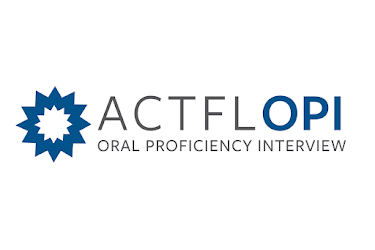The Oral Proficiency Interview (OPI) Exam is a unique test designed to assess spoken language skills in real-time conversations. Often used for professional, educational, and immigration purposes, the OPI Exam is valued worldwide for its interactive format and its ability to measure real conversational skills. If you’re looking to prove your spoken proficiency for work, study, or travel, this guide will help you understand the OPI Exam and how to prepare effectively.
What is the OPI Exam?
The OPI Exam, administered by the American Council on the Teaching of Foreign Languages (ACTFL), evaluates an individual’s ability to speak a language through an interactive conversation with a certified examiner. Available for over 100 languages, the OPI Exam assesses language proficiency on a scale ranging from novice to superior, based on the ACTFL guidelines. Unlike standardized multiple-choice exams, the OPI allows candidates to demonstrate practical speaking skills in real-time, making it highly relevant for professional and educational contexts.
Why Take the OPI Exam?
The OPI Exam provides a realistic measure of speaking ability, which is especially beneficial for individuals pursuing careers or education where strong verbal skills are required. Many organizations, academic institutions, and government agencies recognize the OPI as a reliable indicator of language proficiency. This exam is particularly advantageous for:
- Professionals seeking roles requiring multilingual communication
- Students looking to study abroad and demonstrate language proficiency
- Individuals applying for immigration or government programs
How the OPI Exam Works
The OPI is conducted over the phone or through a digital platform, depending on the language and testing location. A certified tester guides the conversation, adjusting the difficulty and topics as needed to assess the candidate's maximum proficiency level. Here’s what to expect during the exam:
- Interactive Format: The tester will engage you in a conversation, starting with basic questions and progressing to complex discussions as you demonstrate your abilities.
- Real-World Topics: Conversations cover practical topics such as daily activities, current events, and specialized knowledge, providing a realistic measure of your language use.
- Flexible Duration: The exam usually lasts between 15-30 minutes, but the length varies depending on your level.
Preparing for the OPI Exam
Preparation for the OPI Exam requires more than rote memorization—it’s about developing fluency and comfort with conversational language. Here are some effective strategies:
- Practice Speaking Regularly: Engage in daily conversations with native speakers if possible. This helps build natural language flow.
- Expand Vocabulary: Being comfortable with a wide range of topics improves your adaptability during the test.
- Focus on Pronunciation and Clarity: Clear pronunciation is crucial for demonstrating your speaking ability accurately.
- Familiarize Yourself with the Format: ACTFL provides guidelines and sample questions. Understanding the structure of the interview will reduce anxiety on test day.
Studying Abroad and Language Proficiency
For students aiming to study abroad, the OPI can be a valuable credential. Many international universities and exchange programs consider OPI results when assessing a candidate’s readiness for immersion in a foreign language environment. This makes the OPI a popular choice among study-abroad applicants who wish to showcase their speaking proficiency.
FAQs about the OPI Exam
Q) How is the OPI Exam scored?
A) The OPI is scored on the ACTFL proficiency scale, ranging from Novice (low, mid, high) to Superior. The scale assesses language capability based on a candidate’s ability to perform real-life tasks in the target language.
Q) Is the OPI only available in English?
A) No, the OPI is available in over 100 languages, including Arabic, Spanish, French, and Mandarin, among others. Each language version follows the same format but focuses on culturally relevant topics.
Q) What types of topics are covered in the OPI Exam?
A) The OPI covers topics from daily routines to complex subject matter relevant to the candidate's experiences. As proficiency level increases, topics become more abstract and specialized.
Q) Can I retake the OPI if I’m unsatisfied with my score?
A) Yes, candidates can retake the OPI, but it’s recommended to wait until substantial progress has been made. Regular practice and immersion are advised before retesting to achieve a higher proficiency level.
Q) How do I register for the OPI Exam?
A) Registration for the OPI is conducted through ACTFL’s official website or through affiliated testing centers. Scheduling options and language availability vary based on location and demand.
Conclusion
The OPI Exam is a powerful tool for anyone seeking to demonstrate spoken language proficiency in a practical, real-world context. Whether you aim to study abroad, work in a multilingual environment, or achieve professional growth, the OPI offers a credible, interactive measure of your language skills. For personalized guidance and exam preparation, consider consulting an Overseas education consultancy. They provide tailored resources and support, making it easier to navigate the testing process and meet language requirements for global opportunities.













